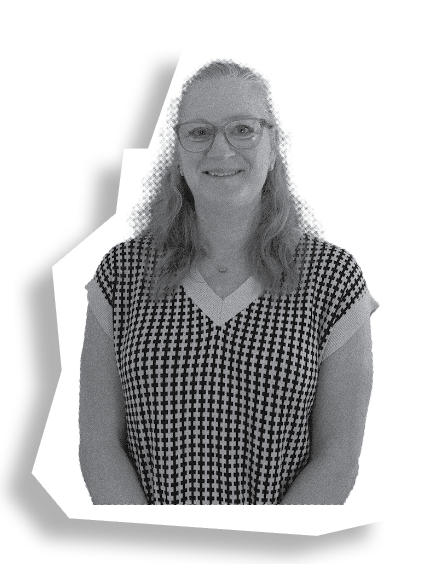Senior Detention
by Shea Splittorff
While scrolling through the class options and requirements booklet one last time for senior year, many soon-to-be seniors couldn’t wait to reach the page of early and late releases, study halls and office aide options — a previous privilege specially preserved for seniors. The long-awaited prerogative was quickly swiped away just two short weeks before the beginning of school.

English teacher Michael McCosh and senior Hailee Scheer are especially affected by this school-wide policy change. As a senior study hall advisor, McCosh is “disappointed for the senior class.”
He said the pros and cons of this shift varies in effect as “the time benefits the seniors, [but] having that lack of flexibility [does] not.”
This new regulation not only puts more stress on students but also reveals new responsibilities for staff members to worry about.
“The school is trying to act in good faith, in accordance with expectations higher up the chain,“ McCosh said. “[But] it has put more on teachers to manage the checkout system a little bit more stringently.”
Many seniors struggle to feel the same, one being Scheer.
“We are almost adults, and we should be able to manage our time during [a] class that is not [for] credit,” she said.
These changes continue to affect her life, not only academically, but also in her career.
“[Admin assured me that I] should be able to leave early to get to [my] job, [but] now they took this way.” With Scheer’s family having to get involved “to sign [their] almost adult child out every single Monday and Wednesday just to go to work, the school supports what [is] better for the state, not what [is] better for the students.”
Despite this, McCosh said “seniors still have freedoms — they just look different.”
However, Scheer agrees with the overarchingly negative student consensus.
“They’re very much thinking what is better for the school and state than what is better for the students that are going through it,” she said.
Classroom Crisis
by Emily Kozlowski and Elke Brock
The first day of school was a rush, especially for the counselors, having students come in and out for schedule changes or issues with their classes. Blue Valley counselor April Henke had more than 80 requests for schedule changes and 30 emails.
“Some of them were [to resolve] errors,” Henke said. “There was something in their schedule that didn’t fit, [an] AP class conflicted with CAPS — stuff like that. Some of them were ‘I just want to see if I can move my classes to different hour

s.’ [It was a] very huge variety of different issues.”
In past years, it took the counselors longer to change student’s schedules, but since their policy changed, “it’s actually gotten better.”
Henke approves of the new system for students to request schedule amendments.
“It’s nice that we have the Google Form that students can fill out. That way we can be working on it before and after school –– even in the evening if it’s an easy fix,” she said.
Not having enough capacity in a class has been one of many issues plaguing the school. Henke expressed how this has been happening for years now, mentioning how the counselors and teachers try to resolve these issues to the best of their abilities.
“Honors ELA 10 was a huge problem this year because a lot of people didn’t request it, but then decided, ‘oh, maybe I do want to do honors,’ so we didn’t have enough seats for all the people that went in,” Henke said.
One such teacher with an inflated class size was math teacher Kate Baker.
“We started off at like 50 [students in study hall] — eight of them were underclassmen — but now we’re at 44,” Baker said.
Study hall classes have always attracted a large number of students, but with the change in senior study hall, the sheer amount of kids are being fully felt.
“Last year, we had a good amount of students, like this one for first semester,” Baker said. “Second semester was more manageable –– we had a ton of seniors, but we didn’t have to keep track of them. It just felt like less because we never saw the seniors.”
When adapting to the new class size, Baker had to make some changes to how she manages her classes.
“We definitely had to figure out a system — just kind of coming up with how it was going to work,” she said.
Baker said the decision to get rid of senior study halls did not come from BV administration, it came from the district.
“We got in trouble by the state because we get money by the number of students that are full time in the building, so we risk not getting funding,” she said.
Although the changes caused issues within the school, Baker believes it’s important to align with the school district’s values.
“We’d love to have more freedom, but the state doesn’t feel that that’s OK, so we [have] to follow the rules,” she said. “It was a nice privilege.”
Maximum Security
by Beckett Hodes
Among the myriad of criticisms students levied at the beginning of the 2025 school year, perhaps the most universal is the newly implemented cell phone policy.
Students were told that building-wide, phones would now have to be put into the now-familiar caddies at the beginning of each class period –– controversially including study hall, AST and Advisory periods.
Teachers informed students that more than 70 of the building’s staff voted for the new policy.
In previous years, teachers were provided caddies, and the option of if and how to utilize them was given to the individual teacher or the department in which they worked.
Of the many teachers who utilized the caddies in years prior, the problem of consistency arose. Students would often be angered or confused when a new teacher would require their phones to be caddied, which could have led to an unfair first impression.
Among any group, however, no opinion is universal. Social studies teacher Kim Thompson was among the few dissenting voices.
“I see why the policy has been implemented,” Thompson said. “But in addition to those thoughts I think we’re doing a disservice. I think we could train students to self-manage, and compulsorily caddying isn’t that.”
Thompson elaborated on this point, stating that she shares concerns with many that students who only are able to separate from their phones when forced to, will struggle in college or the workplace where those guardrails cease to exist. She “feels like we need to have a gradual need a gradual release of responsibility.”
Thompson also expressed that, especially during hours where lunch occurred, students were missing a substantial amount of academic time.
“They are putting it up right away but what if the bell is ringing and they just got here? Then it’s lunchtime and that’s 28 kids that have to get to one caddy, then they come back and have to stand in line again,” Thompson said. “I see a lot of missed time standing at a phone caddy.”
Thompson also provided an alternative plan, one which she claims has worked in years past.
“One policy that I’ve used is what I’d expect from an adult at a meeting. You would step out, handle your business, then quietly reintegrate. They’re having to value the phone usage over class time,” she said. “That policy has worked in the past, and it reduced phone usage while letting people live their lives.”




